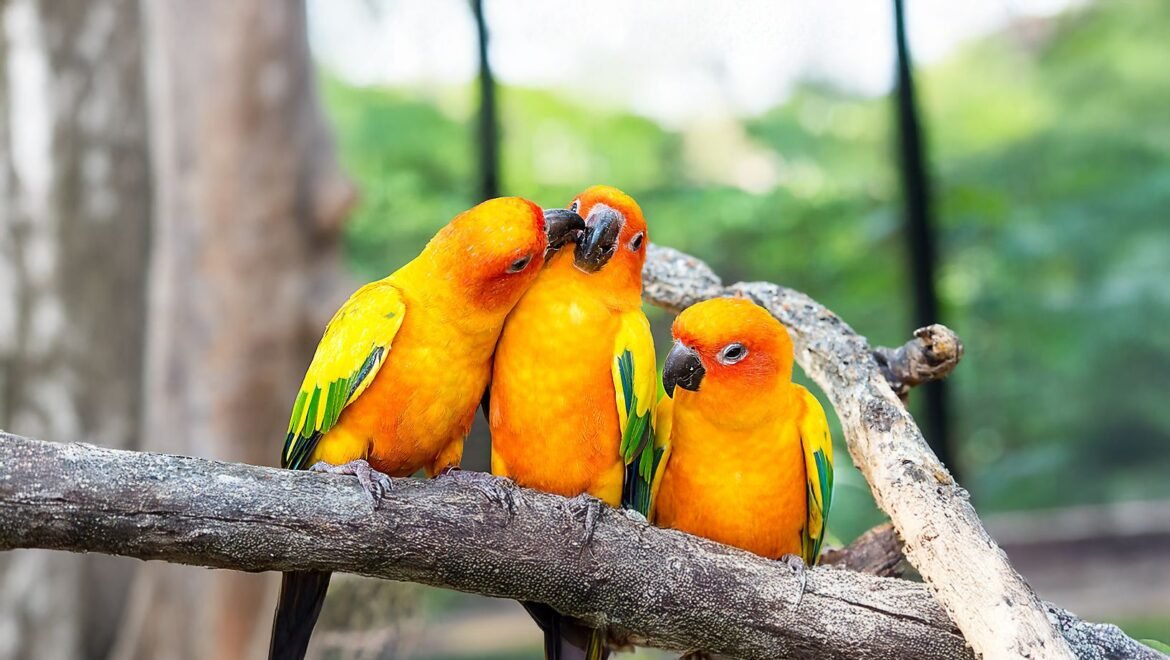Birds are among the most fascinating creatures on Earth. Their colorful feathers, melodic songs, and intelligent behaviors have captivated humans for centuries. Whether they live in the wild, in our backyards, or as cherished pets, birds require proper care, a balanced diet, and emotional understanding to thrive.
🏡 Caring for Birds: Their Basic Needs
Whether you’re a bird owner or just love observing wild birds, providing a safe and healthy environment is key.
✅ For Pet Birds:
- Clean Housing: Keep cages spacious, clean, and enriched with toys and perches.
- Fresh Water: Change drinking water daily; birds are sensitive to dirty water.
- Natural Light: Birds need sunlight or full-spectrum lighting to synthesize vitamin D.
- Mental Stimulation: Boredom can lead to stress and feather plucking. Provide mirrors, puzzles, and interaction.
✅ For Wild Birds (in your backyard or garden):
- Feeders & Baths: Install bird feeders and shallow bird baths. Keep them clean to avoid disease.
- Safe Spaces: Plant native trees and shrubs to offer shelter.
- Avoid Chemicals: Pesticides and herbicides can poison birds and their food.
🥗 Bird Diet: Feeding for Health and Longevity
Birds have varied dietary needs depending on their species, size, and natural habitat. A poor diet can cause illness, obesity, or behavioral problems.
🐤 Common Pet Bird Diets:
- Seeds and Grains: Suitable for finches, canaries, and parrots — but not as a complete diet.
- Pellets: A balanced commercial option for parrots, cockatiels, and budgies.
- Fresh Fruits & Veggies: Carrots, apples (no seeds), spinach, peas, and berries add vitamins and texture.
- Protein: Boiled eggs or mealworms are important for some birds during molting or breeding.
- Avoid: Avocados, chocolate, caffeine, onion, and alcohol — all are toxic to birds.
🐦 Wild Bird Feeding Tips:
- Seasonal Diets:
- Spring: insects and protein
- Summer: fruit and nectar
- Winter: fat-rich seeds and suet
- Don’t Feed Bread: It fills birds without nutrients and can cause deformities in chicks.
🧠 Bird Psychology: Smarter Than We Think
Birds are highly intelligent and emotional beings. Understanding their behavior helps improve their care and strengthens the human-bird bond.
🧠 Signs of a Happy Bird:
- Singing or chirping regularly
- Preening feathers and stretching wings
- Active and curious behavior
- Comfortable with human interaction (in pets)
😟 Signs of Stress or Boredom:
- Feather plucking or self-mutilation
- Excessive screaming or silence
- Pacing or head bobbing repetitively
- Aggression or hiding
🧠 Intelligence in Birds:
- Parrots and crows can solve puzzles, mimic human speech, and use tools.
- Pigeons recognize themselves in mirrors — a sign of self-awareness.
- Budgies and cockatiels can learn patterns and routines, and form strong bonds with humans.
Birds also mourn, play, and even show empathy toward others. Keeping them mentally and emotionally engaged is essential for their well-being.
💡 Tips for Building Trust With Birds
- Spend time near them without forcing interaction.
- Use a calm voice and consistent routines.
- Offer treats from your hand slowly and patiently.
- Allow them to explore safely outside their cage when possible.
Trust builds gradually — especially with rescued or shy birds — but it leads to deep and rewarding companionship.
🕊️ Conclusion: Caring for Birds is a Joy and a Responsibility
Whether you’re nurturing a pet cockatiel or leaving seeds out for sparrows, caring for birds is about more than food and shelter. It’s about understanding their natural instincts, respecting their intelligence, and supporting their physical and emotional health.
In return, birds give us beauty, joy, and a deeper connection to the natural world. Every chirp, every flutter of wings, and every curious look reminds us how truly special these feathered friends are.
✨ Final Thought :
“Birds don’t just need our care — they need our understanding. Feed their bodies, yes — but never forget to feed their hearts and minds too.”
